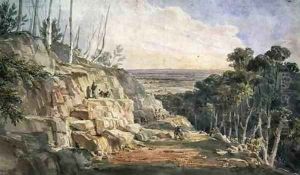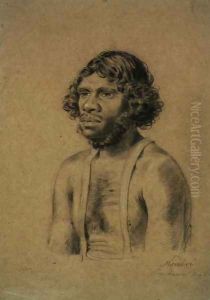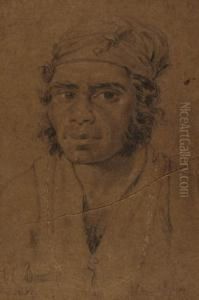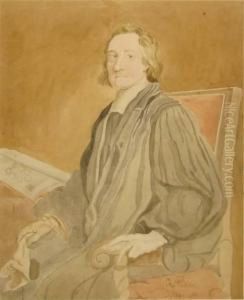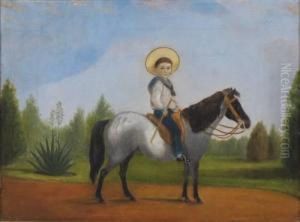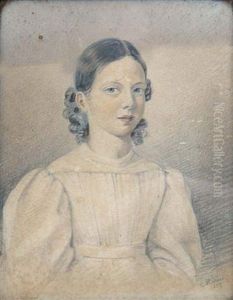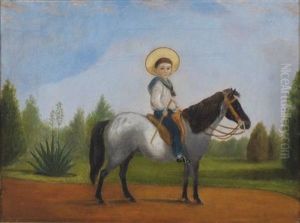Charles Rodius Paintings
Charles Rodius, born in 1802 in Cologne, then part of the French Empire, was an artist of considerable talent who spent the majority of his career in Australia. His journey to Australia was not one of free will; rather, he was transported there as a convict after being convicted of stealing in London. Despite this inauspicious beginning, Rodius would go on to contribute significantly to the artistic landscape of early colonial Australia.
Rodius arrived in Sydney in 1829 and, after serving part of his sentence, was granted a ticket-of-leave, which allowed him some freedom to work. He quickly established himself as a skilled draughtsman and teacher of art. His works included portraits, landscapes, and architectural drawings, which are valuable records of the early colonial period. Rodius' ability to capture the likeness and character of his subjects in his portraits was particularly noted. His landscape works often depicted the burgeoning settlements and the natural environment of New South Wales, providing a glimpse into the early days of the colony.
Despite his talent, Rodius lived much of his life in poverty. He often worked on commission, creating portraits for prominent colonial figures and teaching drawing. In the 1830s and 1840s, his work was exhibited in Sydney, and he was occasionally mentioned in the local press. However, his reputation as an artist was somewhat overshadowed by his status as a convict, which affected his social standing and professional opportunities.
Charles Rodius passed away in Sydney in 1860. While he may not have achieved great fame during his lifetime, his work is now recognized for its historical and artistic value. Today, his drawings and watercolors are held in several Australian institutions, including the State Library of New South Wales and the National Library of Australia. They continue to provide insight into the people, places, and culture of early 19th-century Australia and serve as a testament to the skill and perseverance of an artist who overcame the stigma of his convict past to leave a lasting legacy.
